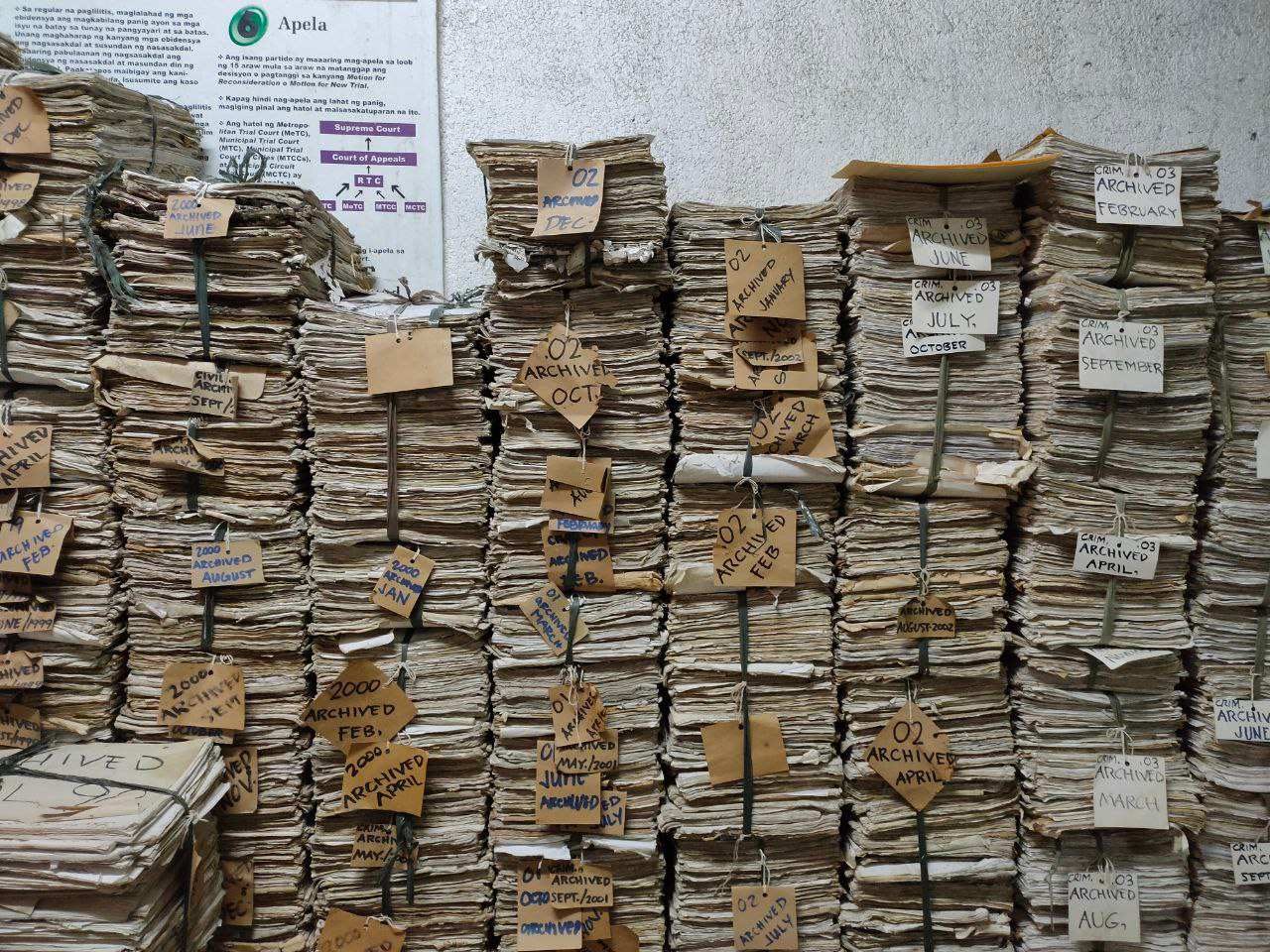SUMMARY
This is AI generated summarization, which may have errors. For context, always refer to the full article.

The Judicial and Bar Council (JBC) on Friday, March 12, probed into the seeming double standard when it comes to following deadlines for the courts to decide cases, with one member asking if the exemption given to the Supreme Court is a violation of equal protection.
“From the public perspective there is seemingly a different standard in the compliance and sanctions, does this violate the equal protection clause?” JBC member retired justice Noel Tijam asked on Friday during the interview of Senior Associate Justice Estela Perlas Bernabe for chief justice.
Bernabe said, “I don’t think so,” adding that lower court judges and appellate court justices can always ask for an extension.
“Lower courts and even the appellate courts, for as long as there is justifiable reason for non-compliance, they could really ask extensions,” said Bernabe, who was first to go through the interviews. Associate Justices Alexander Gesmundo and Ramon Paul Hernando had yet to be interviewed as of posting.
Section 15, Article VIII of the Constitution says all cases must be decided by the Supreme Court within 24 months, yet this rarely happens.
Bernabe said that the en banc had already decided in 2019 that this provision is merely directory and not mandatory as far as the Supreme Court is concerned.
“The reason cited is that the Supreme Court should be given ample time to deliberate on issues, to ensure that the litigants’ rights are protected especially public interest cases, but notwithstanding this current jurisprudence I recognize the Court should strive very hard to find the most efficient way to dispose cases,” said Bernabe.
Bernabe also defended Associate Justice Marvic Leonen for the time it took to junk Bongbong Marcos’ electoral protest against Vice President Leni Robredo.
Tijam had asked why it took 5 years. Bernabe said Leonen only inherited the case and had to study voluminous records.
“He has to be very careful because this is a political, somehow it has political color. And he was very careful in deciding this case,” Bernabe said.
Tijam asked if there was no evidence of electoral fraud, shouldn’t the Presidential Electoral Tribunal (PET) dismissed it outright?
“Yes, and in fact that’s what Justice Leonen did insofar as the 3rd cause of action is concerned. He went through every piece of evidence, without saying that we should reopen the 3rd cause of action, he made sure that if the case was reopened, he would come up with the same conclusion, that’s why it took him some time,” said Bernabe.
For his part, Associate Justice Alexander Gesmundo said leeway is given to the Supreme Court because judges’ decisions lay out doctrines, whereas trial courts are concerned only with two opposing parties.
“Decision or proceedings in the Supreme Court must be viewed from the myopic view of trial courts to a broader canvass. The decision of the Supreme Court establishes precedents, establishes doctrines. The ripple effect of a Supreme Court decision is not confined to parties before it,” said Gesmundo.
Why are judges sanctioned, and not SC justices?
The same provision says lower collegiate courts, like the Court of Appeals, have 12 months to decide cases, while trial courts have 3 months.
In June 2020, the Supreme Court fined Court of Appeals Justice Marilyn Lagura-Yap for failing to decide 160 cases on time as judge.
During his turn, Representative Vicente Veloso, who is a JBC member by virtue of him being the chairman of the House Justice Committee, asked how come Supreme Court justices aren’t sanctioned when they miss the deadline, yet lower court judges are?
Bernabe insisted the sanction was because they did not ask for exemption to these deadlines.
“Everyone can ask for exemption, and there is no limit to this exemption for as long as you ask for it, and you are honest to admit that you have not complied with the mandatory periods in resolving cases. Same in the Court, we also ask for an extension, and extensions have been granted by the Court sitting as a collective body,” said Bernabe.
Associate Justice Ramon Paul Hernando, a former judge himself, said the Supreme Court should be able to grant extension requests.
“The Supreme Court has a duty really to see to it that our judges and justices comply with the Constitution, but at the same time, the Court needs to recognize circumstances beyond judges’ control that, as long as justifiable, I don’t see any reason why the court cannot grant extension,” said Hernando.
Hernando added: “We are after judgments that are fair, in accordance with evidence and rules.”
As Bernabe said, the slow pace of justice in the Philippines is a perennial problem, exacerbated by the fact that the Court has yet to fully digitize its processes.
The JBC is interviewing Bernabe, Gesmundo, and Hernando for the post of chief justice, replacing Chief Justice Diosdado Peralta who will retire on March 27, 2021, a year earlier than he is required to. – Rappler.com
Add a comment
How does this make you feel?





There are no comments yet. Add your comment to start the conversation.